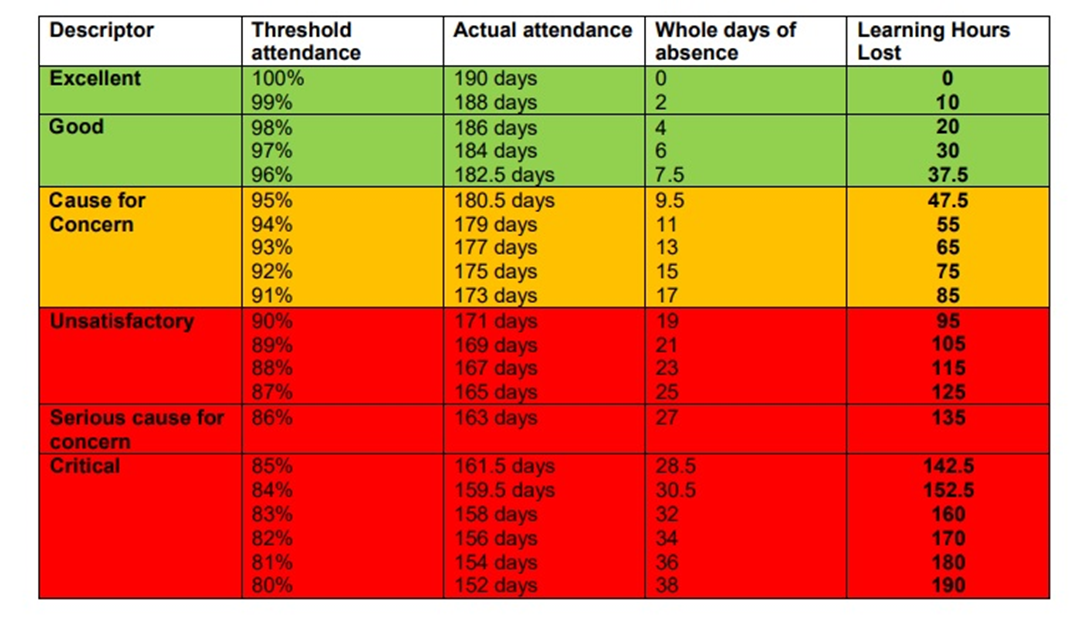Attendance
This week's Attendance

Attendance has a significant impact on a child’s learning, achievement and well-being. There are times when your child may be unwell. However, we consistently work towards a goal of 100% attendance for all children. High levels of children’s achievement and high levels of attendance are inextricably linked. Promoting excellent attendance and punctuality is a shared responsibility between the children, parents and school.
Please refer to this useful information on the NHS website Is my child too ill for school?
Parents have a legal responsibility to ensure that their child attends school regularly and punctually. All schools are required by law to keep attendance registers and each child’s attendance is regularly monitored. In addition, the performance of a school is bench marked nationally to assess its overall performance. The school is required by the local authority to keep you updated with your child’s attendance, particularly if the attendance is below national expectation. If the school has concerns about your child’s attendance, we would welcome the opportunity to meet with you and work together to improve your child’s attendance. Please see our Attendance Policy and our Attendance Newsletter below.
You are also welcome to discuss any concerns you may have about your child’s attendance at the school.
BCP Attendance Code of Conduct
Lost Hours of Learning
Hours of learning lost due to absence from school
When staff talk about attendance percentages with parents or pupils, it can be difficult for them to understand why there are concerns. A child with 89% attendance at the end of an academic year will have missed 21 days of school (over four school weeks of learning missed).
Whilst 89% is a positive achievement in an examination/test, 89% attendance would warrant a significant level of concern.
In order to address this issue, the following table has been put together to support talking to parents/carers/pupils about the amount of ‘learning hours lost’ as a result of a pupil’s absence.
Parties need to be advised that, where a child does not attend school, they miss out on significant hours of learning opportunities (broadly calculated as 5 hours for every two sessions missed) which are unlikely to be covered again. This places a child at significant risk of falling behind their peers:

